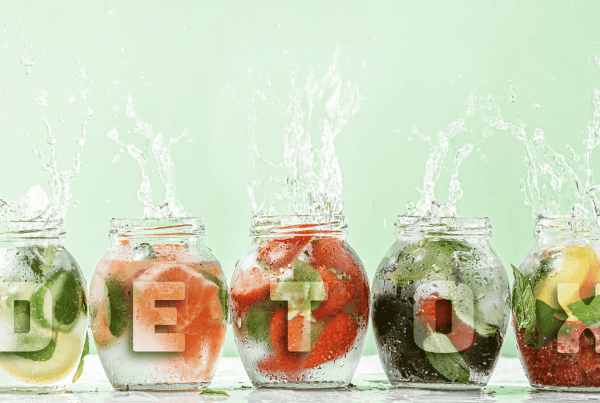Welcome to the journey towards a vegan lifestyle and improving your health! If you have been thinking about switching to a vegan diet or are already taking that path step by step, this is the blog for you. A vegan lifestyle is not just a diet, but a lifestyle based on compassion for animals, environmental protection and taking care of your health.
In this blog, you will discover useful tips, tricks and information that will help you make a very easy transition to a vegan diet and explore all the benefits it brings to your health. Whether you're new to the world of vegan nutrition or already have some experience, together we'll explore key aspects of this journey, including how to meet nutritional needs, prepare delicious meals, avoid common pitfalls, and learn how to feel vital and energized throughout the day.
A vegan diet can be an inspiring and satisfying experience, and we'll guide you every step of the way to achieve your goals and achieve optimal health. Are you ready for this adventure? Let's start together on the vegan road to health!
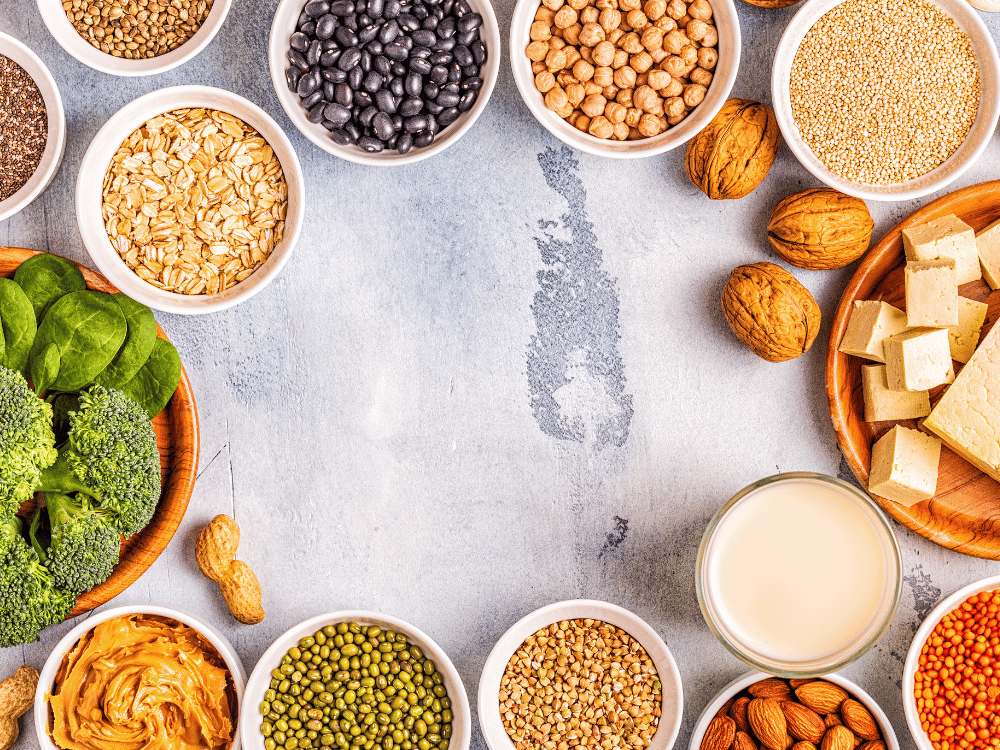
The health benefits of a vegan lifestyle
A vegan lifestyle brings numerous benefits to our health, which are supported by scientific research. This diet is receiving more and more attention because of its positive effects on our body and soul. Here are some key health benefits of a vegan diet:
Reduced risk of chronic diseases
Studies have shown that vegans have a lower risk of developing chronic diseases such as heart disease, type 2 diabetes and certain types of cancer. This diet is rich in fiber, antioxidants and low in saturated fat, which contributes to better cardiovascular function.
Weight control
A vegan diet often results in lower calorie intake and a healthier body mass index. Also, fruits, vegetables and whole grains contribute to the feeling of satiety, preventing overeating.
Improved digestion
The high fiber intake in a vegan diet supports gut health, prevents constipation and helps maintain a balanced gut flora.
More energy and vitality
Vegans often report increased energy and a sense of lightness as a result of consuming a rich variety of fruits, vegetables and nuts.
These benefits of a vegan lifestyle are not only the result of eliminating animal products from the diet, but also of carefully choosing foods that are rich in nutrients. A properly planned vegan diet can bring extraordinary benefits to our physical and mental health.
Nutritional basics of a vegan diet
Vegans need to plan their diet carefully to ensure they get all the necessary nutrients. Here are the essential nutrients that vegans should consider in order to meet their nutritional needs:
Proteins
Although protein intake is often a concern on a vegan diet, many vegan sources of protein, such as peas, lentils, beans, nuts and tofu, provide all the essential amino acids.
Iron
Plant sources of iron, such as spinach, broccoli, sesame seeds and beans, are rich in this important mineral. In order to better absorb iron from plant sources, it is recommended to eat foods rich in vitamin C, such as citrus fruits or peppers, with the main meal.
Calcium
Calcium is essential for healthy bones and teeth. Vegans can get it from foods such as almond milk, sesame seeds, green leafy vegetables (such as kale) and calcium-fortified tofu.
Vitamin B12
This is the only vitamin not found in plant sources, so vegans often use vitamin B12 supplements or fortified foods, such as vegan milk replacers and cereals.
Some examples are - almond milk, soy milk, nutritional yeast as a substitute for cheese, various energy drinks or energy bars can be enriched with vitamin B12.
Omega-3 fatty acids
Flax seeds, chia seeds and nuts are sources of omega-3 fatty acids that support heart and brain health.
Fibers
A vegan diet is usually high in fiber due to the abundance of fruits, vegetables, legumes and whole grains. Fiber supports digestive health and helps keep blood sugar levels stable.
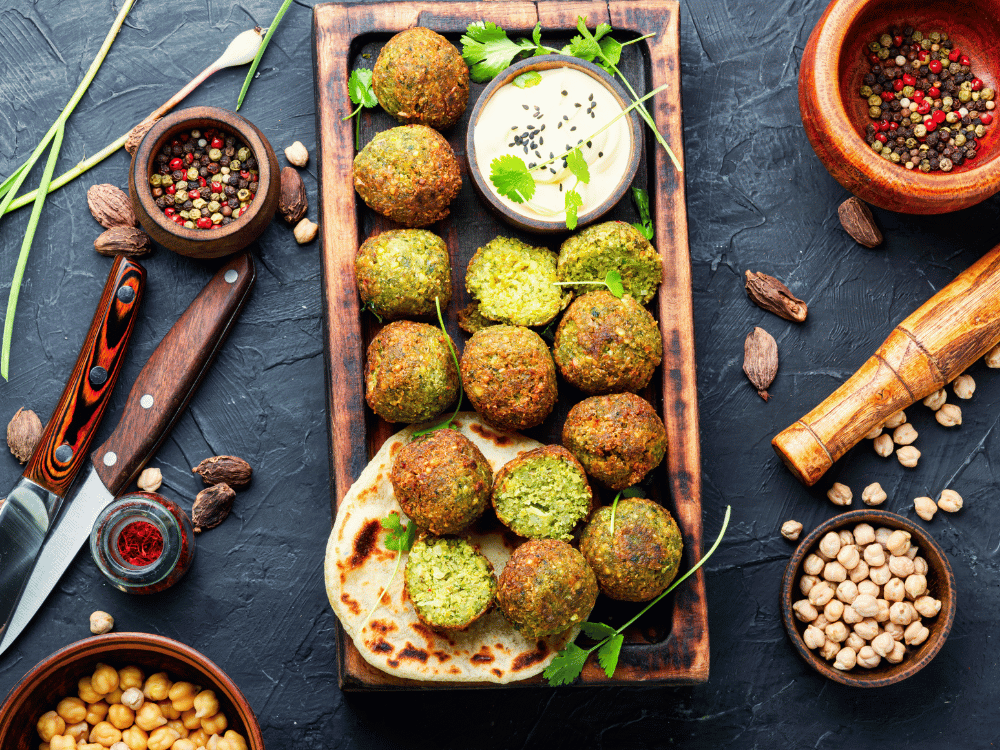
Meal planning
Here are some practical guidelines for creating delicious and balanced vegan meals throughout the day:
Breakfast:
For an energetic start to the day, consider options like oatmeal with fresh fruit and nuts, toasted avocado on wholemeal bread, or a vegan smoothie with banana, spinach and almond milk.
Lunch:
Lunch can be rich and satisfying with vegan salads with a variety of vegetables, avocado, nuts and peas or azuki beans for extra protein. Also, consider cooked meals like vegan chili or vegetables with tofu.
Dinner:
Dinner can include delicious vegan pasta with tomatoes and vegetables, curry with coconut milk and various spices, or baked sweet potato stuffed with spinach and chickpeas.
Snack:
For a snack, snack on nuts, fresh fruit, vegetables with hummus, or vegan energy bars.
The key is variety and including as many colors and textures as possible in meals to ensure a variety of nutrients. Proper planning of vegan meals ensures an adequate intake of protein, fiber, vitamins and minerals, making a vegan diet a tasty and nutritious option for daily consumption.
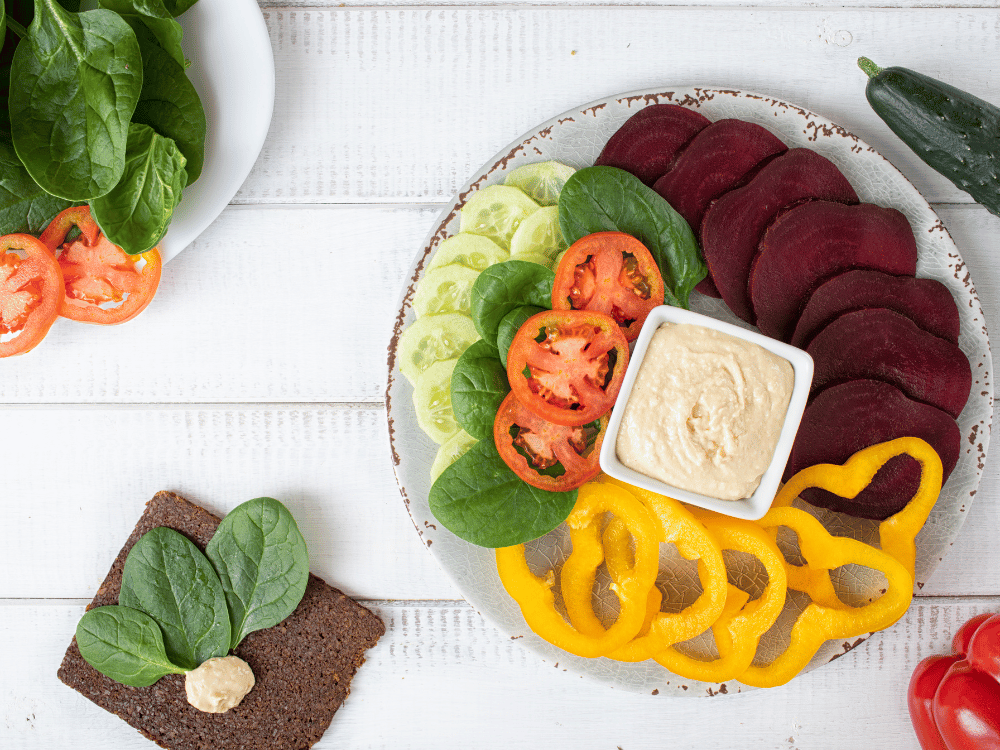
How to cope with the transition to a vegan diet
Transitioning to a vegan diet can be challenging, but with the right tips and tricks, the process can be easier and more enjoyable.
Here are some helpful guidelines to ease the transition from a standard diet to a vegan diet:
Start gradually.
Instead of going all vegan straight away, consider a gradual approach. Start by cutting back on meat, dairy and eggs, then gradually introduce vegan substitutes and recipes.
Education is the key.
Learn about nutritional needs and plant sources of nutrients.
Understanding what substitutes for animal products are and how to meet your needs for protein, iron and other nutrients is essential.
Plan your meals.
Plan your meals in advance to ensure you get all the nutrients you need. Proper planning prevents the feeling of hunger and lack of energy.
Explore new recipes
A vegan diet offers countless delicious options. Exploring new recipes and experimenting with different foods makes this transition interesting and fun.
Support and information
Join a vegan community or look for online resources and support groups.
Sharing experiences and questions with others who have gone through the same thing can be very helpful.
Patience and self-confidence
Expect there to be challenges and occasional "falls" off the vegan trail. Don't be too hard on yourself and give yourself plenty of time to adjust.
A willingness to explore, learn and adapt to a new way of eating is key to a successful transition to a vegan diet. With support, education and patience, you can enjoy the richness of a healthy and ethically conscious diet.
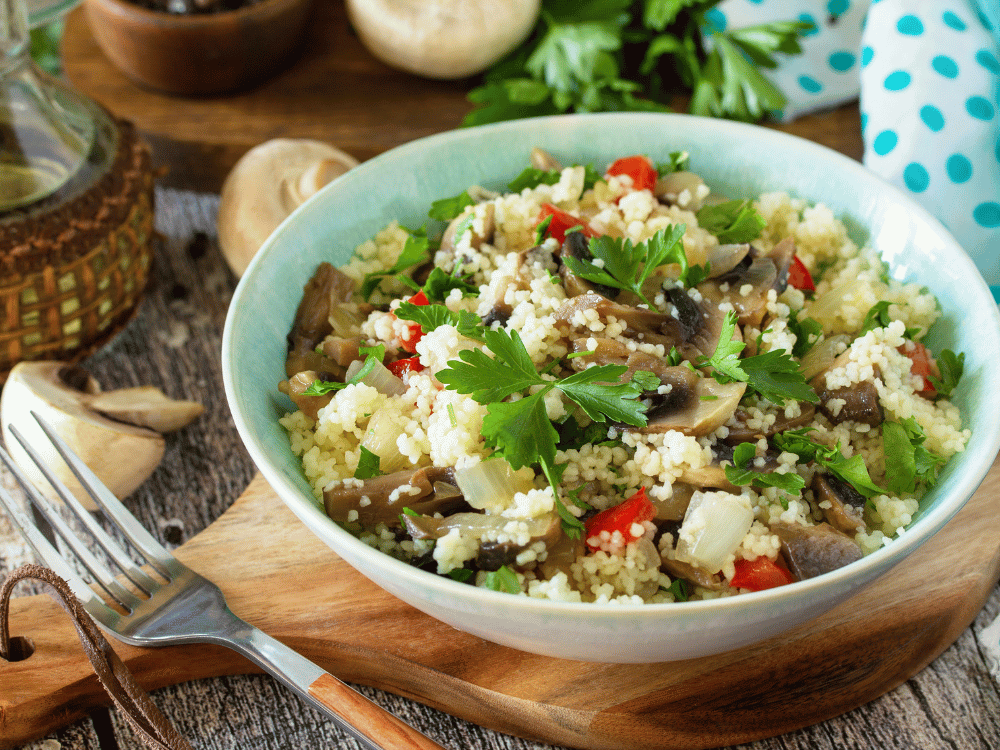
Challenges and how to overcome them
Recognize common challenges beginners may encounter on the vegan journey and provide strategies for overcoming those obstacles
Social pressure
Criticism or misunderstandings from friends and family can be a challenge. Stay calm, educate them about your decision and share information about the benefits of a vegan diet.
Lack of vegan options in public places
Restaurants and fast food may be limited in offering vegan food.
Plan ahead, research restaurants that offer vegan options, and always bring snacks with you.
One of the great sites where you can find vegan restaurants and other establishments that offer vegan products is Happy Cow.
Lack of inspiration for meals
Eating routine can lead to boredom. Look for new recipes, experiment with different ingredients and discover new tastes.
Lack of support
If you don't have support in your area, join online vegan communities to share experiences and get extra support.
My personal experience of switching to a vegan diet
Switching to a vegan diet in 2018 was a turning point in my life.
At that time, the market was not full of meat and dairy alternatives, but I decided to go on this adventure regardless of the restrictions.
For me, there was no option to adjust slowly – the transition was instantaneous.
The first few weeks were challenging. Habits were ingrained, and meat and dairy products made up the majority of my menu. However, as time went by, I adapted to a vegan diet surprisingly quickly. Already after a month, I started noticing changes. Not only did I stop craving animal products, but I felt significantly lighter and more energetic every day.
One of the biggest transformations I noticed was the amount of food I was eating. Without meat and dairy, I realized that I needed much less food to meet my needs and stay full. I became aware of my nutritional needs and focused on eating a variety of plant-based foods.
When I look back now, after several years, I realize that switching to a vegan diet was one of the best decisions I could have made for my health. I feel energetic, healthy and fulfilled, and these are priceless rewards for my determination to change my diet.
What was your experience when switching to a vegan diet? Share your story with us in the comments!
Also, if you are not sure which vegan products you need to complete your diet, check out our range of vegan products by clicking the button below.




